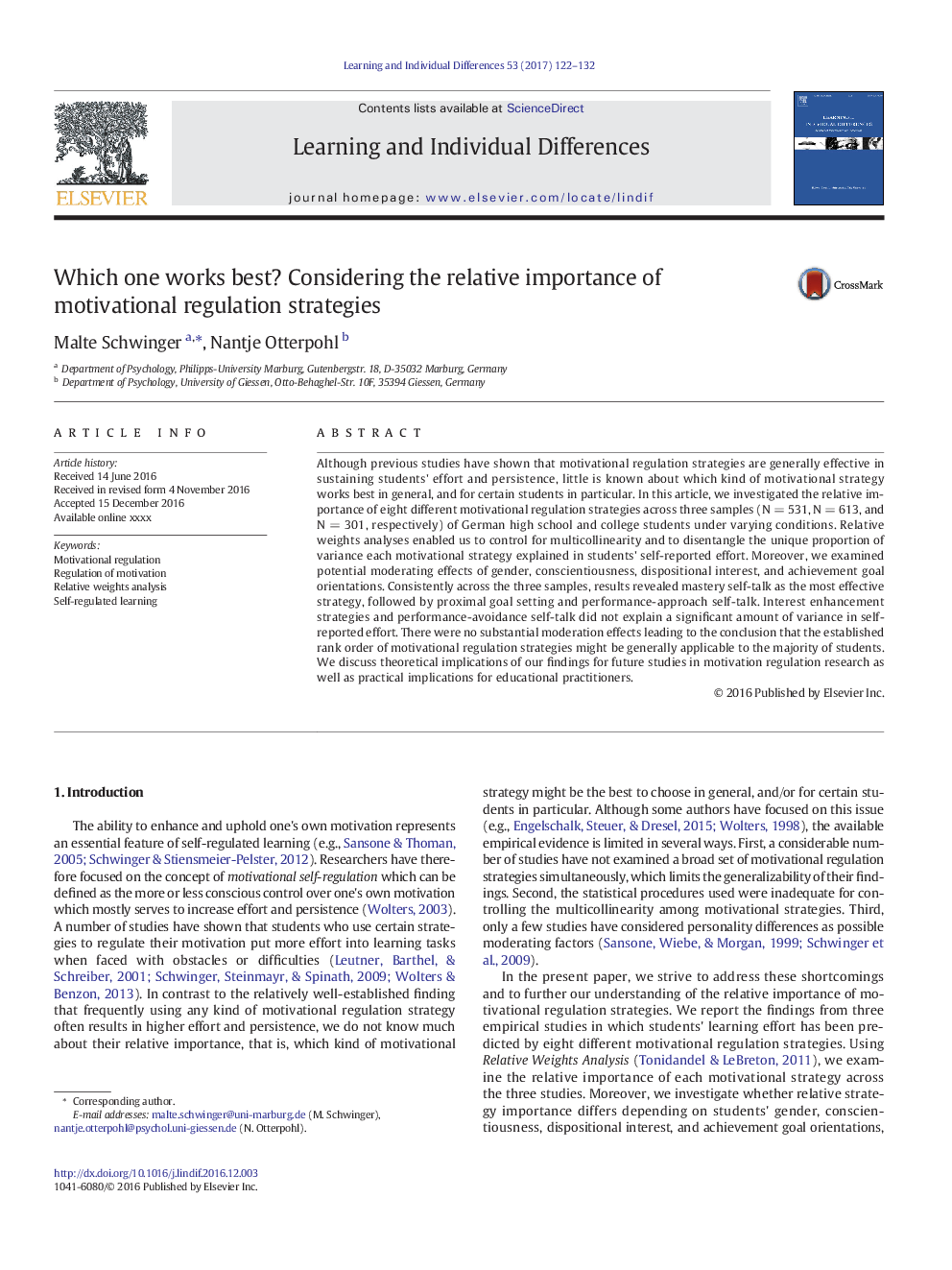ترجمه فارسی عنوان مقاله
کدام یک بهتر کار می کند؟ با توجه به اهمیت نسبی استراتژی های تعدیل انگیزشی
عنوان انگلیسی
Which one works best? Considering the relative importance of motivational regulation strategies
| کد مقاله | سال انتشار | تعداد صفحات مقاله انگلیسی |
|---|---|---|
| 114438 | 2017 | 11 صفحه PDF |
منبع

Publisher : Elsevier - Science Direct (الزویر - ساینس دایرکت)
Journal : Learning and Individual Differences, Volume 53, January 2017, Pages 122-132
ترجمه کلمات کلیدی
مقررات انگیزشی، مقررات انگیزش، تجزیه و تحلیل وزن نسبی، یادگیری خودمراقبتی،
کلمات کلیدی انگلیسی
Motivational regulation; Regulation of motivation; Relative weights analysis; Self-regulated learning;

